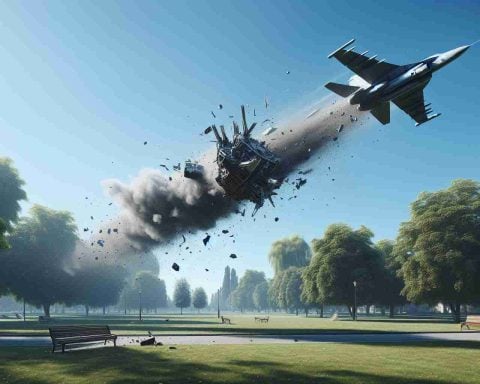Tensions have erupted between Pakistan and China as negotiations over the strategic port of Gwadar hit a roadmap blockade. Islamabad’s unexpected request for China to provide a second-strike nuclear capability has stalled discussions, creating a diplomatic rift between the two allies.
Pakistan has been relying on China as a potential savior for its beleaguered economy, but clandestine discussions revealed China’s discomfort with Pakistan’s latest demands. Islamabad is seeking significant military upgrades, notably a second-strike nuclear option, which would dramatically enhance Pakistan’s defense strategy by ensuring retaliation after a crippling attack.
Compounding the situation is the backdrop of public discontent in Pakistan, fueled by economic setbacks, electoral controversies, and the controversial imprisonment of a former leader. These internal upheavals intensified the difficulty for Pakistan’s military as it juggles relations with both China and the United States.
Earlier this year, confidential communications hinted at Pakistan allowing China to establish a military base in Gwadar, a key maritime point in the region. While Gwadar is a hub of economic cooperation between the nations, its militarization has raised eyebrows globally, notably in Washington, which perceives it as a strategic challenge in the Indo-Pacific.
The talks, part of the 2+2 Dialogue on Strategic Defense, have been rocky. Previous meetings took place in China and Islamabad, but the recent demands have thrown a wrench into proceedings. As Islamabad grapples with Beijing’s hesitancy, its challenge remains to balance foreign relations amidst a rapidly shifting geopolitical landscape, with international laws on nuclear proliferation hanging ominously over the discussions.
Breaking Down the Gwadar Dilemma: What Pakistan and China’s Stalled Talks Mean for Global Politics
In a surprising turn of events, the strategic dialogue between Pakistan and China has hit a major stumbling block. This development stems from Pakistan’s unexpected request for China to bolster its nuclear capabilities, specifically by providing a second-strike nuclear capability. This bold move has not only stalled negotiations but also created a diplomatic rift between these traditionally close allies.
Insights into the Gwadar Dispute
The key sticking point in these talks revolves around the strategic port of Gwadar, an integral part of the Belt and Road Initiative spearheaded by China. While Gwadar is primarily viewed as a linchpin for economic cooperation, its potential militarization could dramatically alter regional power dynamics and exacerbate tensions with other major players, such as the United States. The discussions have spotlighted significant geopolitical concerns, illustrating the delicate balancing act Pakistan must perform in its international relations.
The Economic Fallout for Pakistan
Pakistan has been relying heavily on China to buoy its struggling economy. However, its recent demands for advanced military support and nuclear capabilities have made China uneasy, threatening to derail economic assistance and cooperation. This situation is further aggravated by internal strife within Pakistan, including economic hardships, controversies surrounding elections, and the controversial imprisonment of a former political leader, all of which contribute to the country’s unstable political climate.
Controversies and Security Concerns
The potential militarization of Gwadar has not only sparked controversies but also heightened security concerns at the global level. The United States, among others, views a Chinese military foothold in Gwadar as a strategic challenge in the Indo-Pacific region. This adds another layer of complexity to the negotiations, as Pakistan navigates its relationship with both China and the United States amidst looming international scrutiny on nuclear proliferation.
Broader Implications and Predictions
As the talks stagnate, the ramifications extend beyond just bilateral relations between Pakistan and China. They offer a glimpse into the rapidly shifting dynamics in global geopolitics. How Pakistan maneuvers through these challenges may set precedence for future international negotiations, particularly in regions where economic and military interests intersect.
In conclusion, the stalled strategic talks over Gwadar signal not only a challenging diplomatic impasse but also a pivotal moment that could reshape geopolitical alliances and regional stability in the near future. The world watches closely as Islamabad and Beijing attempt to bridge their differences while maintaining a delicate balance with other global powers.
For more information on global politics and diplomatic strategies, visit Council on Foreign Relations.
















